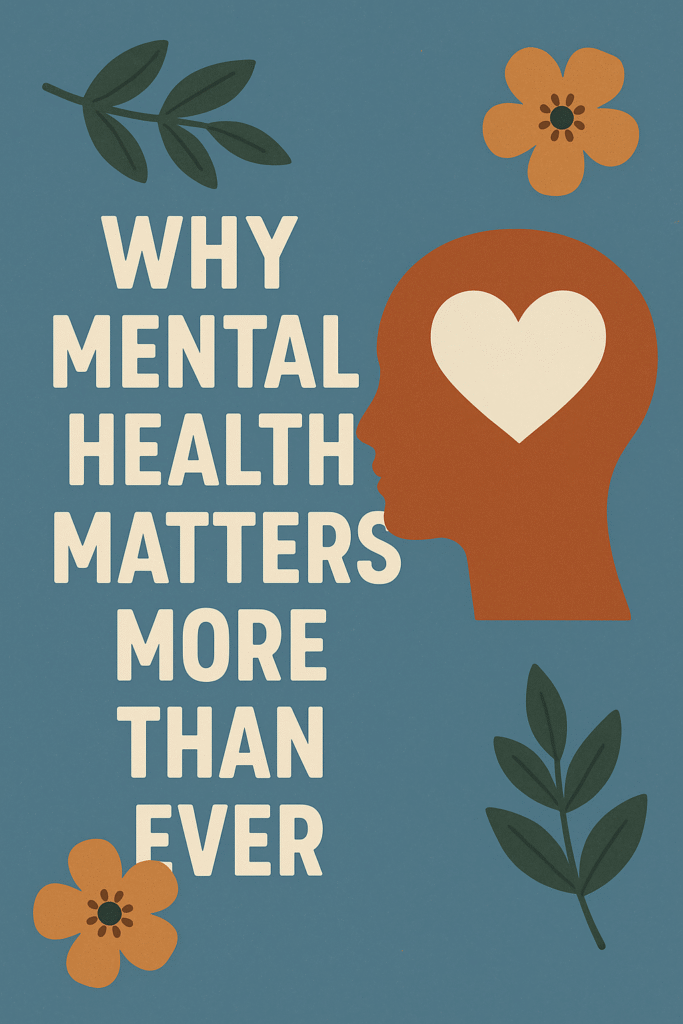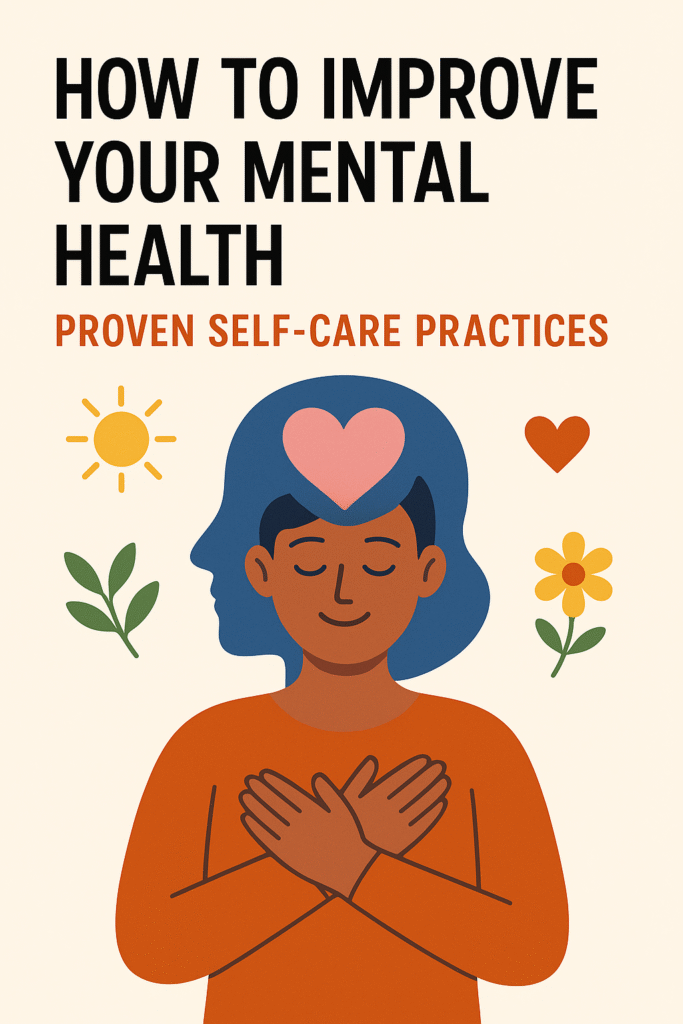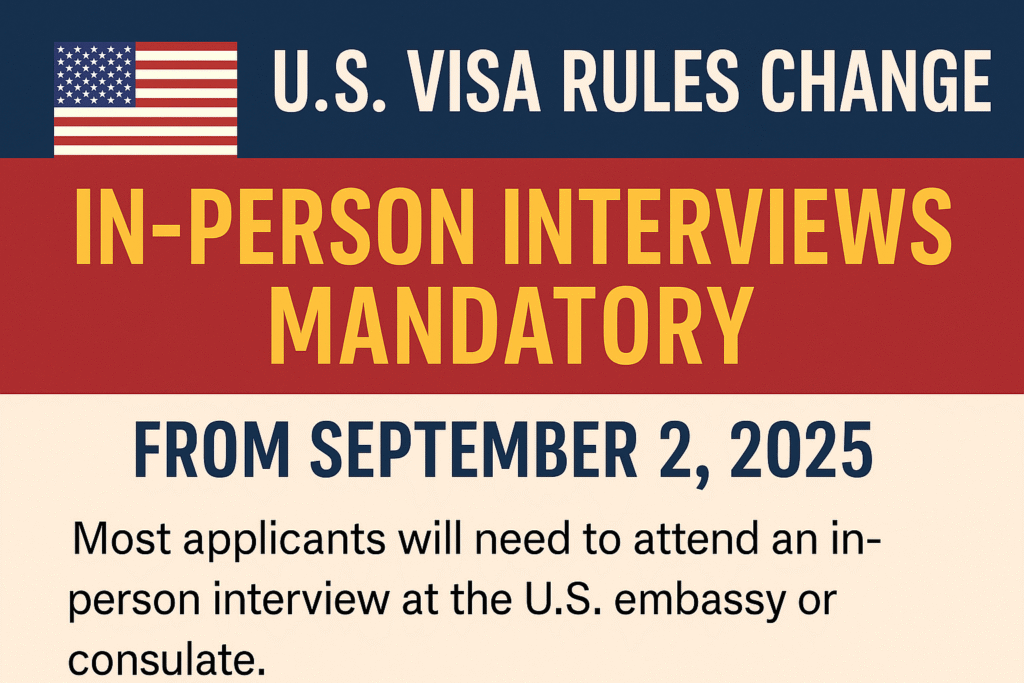Discover proven self-care practices to improve mental health in 2025. Simple daily tips for stress relief, work-life balance, and overall well-being.
In 2025, mental health is no longer a silent topic—it’s a priority. With rising stress, digital overload, and the pressure of hustle culture, millions of people are searching for ways on how to improve mental health and adopt proven self-care practices. The good news is that you don’t need expensive retreats or fancy therapy sessions to feel better. By following a few simple, science-backed daily self-care tips, you can protect your mind, reduce stress, and build long-term emotional resilience.
✅ Why Mental Health Matters More Than Ever
In today’s fast-paced digital world, mental health is no longer a topic we can ignore. From workplace pressure to personal struggles, people are dealing with stress, anxiety, and burnout more than ever before. According to global health reports, cases of depression and anxiety disorders have surged significantly in the last decade, making mental health one of the biggest public health challenges of the 21st century.

🌍 Rising Mental Health Challenges Worldwide
- Work Stress & Burnout: With the rise of remote jobs and competitive work culture, employees often experience chronic stress and workplace anxiety.
- Social Media Pressure: The constant comparison on platforms like Instagram and TikTok is creating low self-esteem and body image issues in young adults.
- Pandemic Effect: Post-COVID, millions of people are struggling with loneliness, isolation, and uncertainty, which directly impacts emotional well-being.
💡 Why Mental Health Is Just As Important As Physical Health
We often focus on physical health by eating right, exercising, or going for regular check-ups. But the truth is: mental health is equally important. A person may look fit but still suffer silently from anxiety, depression, or emotional exhaustion. Studies show that poor mental health can also lead to serious physical problems like heart disease, high blood pressure, and weakened immunity.
👉 “Mental health awareness,” “self-care practices,” “reduce stress naturally,” and “improve emotional well-being” are no longer just buzzwords—they are necessities for living a balanced life. By focusing on mental wellness, people can improve not only their emotional stability but also their relationships, productivity, and overall happiness.
Also Read:-
🌱 Proven Self-Care Practices for Mental Health
When it comes to living a balanced and fulfilling life, self-care practices for mental health are no longer optional — they are essential. In today’s fast-paced world, stress, anxiety, and burnout have become part of daily life. But the good news is, you don’t always need expensive therapy or luxury retreats to take care of your mental well-being. By adopting proven self-care practices, you can naturally improve your mood, increase productivity, and build emotional resilience.
Here are some of the best self-care tips for mental health in 2025 that actually work:
1️⃣ Build a Consistent Daily Routine
A structured routine brings mental clarity and emotional stability. When your brain knows what’s coming next, it reduces unnecessary stress.
👉 Example: Wake up at the same time daily, start your day with mindful breathing or light yoga, and set small achievable goals.
2️⃣ Practice Mindfulness & Meditation
Research shows that mindfulness meditation reduces anxiety, improves focus, and even enhances creativity. Just 10 minutes of meditation daily can bring noticeable changes.
👉 Apps like Headspace or Calm are great, but even simple deep-breathing exercises can calm your mind instantly.
3️⃣ Prioritize Sleep Hygiene
Lack of quality sleep is one of the biggest threats to mental health. Without rest, your brain can’t process emotions properly, leading to irritability and fatigue.
👉 Stick to a regular sleep schedule, avoid screen time 1 hour before bed, and create a calming sleep environment.
4️⃣ Nourish Your Body with Healthy Food
Your diet directly impacts your mood and brain health. Foods rich in omega-3 fatty acids, magnesium, and vitamins are known to reduce stress and improve focus.
👉 Add leafy greens, nuts, seeds, and fresh fruits to your meals.
5️⃣ Stay Physically Active
Exercise isn’t just about fitness — it’s therapy for your mind. Even 20 minutes of walking daily releases endorphins (happy hormones), reducing stress and anxiety.
👉 Choose an activity you enjoy — cycling, swimming, or dancing. Consistency is the key!
6️⃣ Limit Digital Overload & Social Media
Scrolling endlessly on social media can trigger stress, anxiety, and comparison syndrome.
👉 Set screen time limits, unfollow negative accounts, and practice digital detox at least one day a week.
7️⃣ Stay Connected & Seek Support
Human connection is one of the strongest natural medicines for the mind. Talking to loved ones, joining a community, or even seeking therapy when needed helps reduce loneliness and build resilience.
These proven self-care practices for mental health are simple, effective, and backed by science. By incorporating them into your daily life, you not only manage stress better but also create a long-term foundation for happiness and emotional balance.
Also Read:-
⚖️ Work-Life Balance: Key to Better Mental Health in 2025
In today’s fast-paced digital world, maintaining a healthy work-life balance has become more challenging than ever. With remote work, long office hours, and the constant pressure of deadlines, many people are struggling to separate their professional life from their personal well-being. This imbalance often leads to stress, anxiety, burnout, and poor mental health.
🔑 Why Work-Life Balance is Important for Mental Health
- A healthy work-life balance reduces stress levels and prevents chronic burnout.
- It helps improve mental health, productivity, and focus at work.
- Balanced living supports better relationships, family time, and personal growth.
- People with good balance experience less anxiety, better sleep, and higher job satisfaction.
🌱 Tips to Achieve Work-Life Balance in 2025
- Set Boundaries – Avoid checking work emails after office hours. Create a clear separation between work time and personal time.
- Prioritize Self-Care – Regular exercise, meditation, and hobbies improve emotional well-being.
- Use Technology Wisely – Leverage productivity apps but avoid excessive screen time that harms mental health.
- Take Breaks – Short breaks during work enhance focus and reduce stress at work.
- Flexible Work Options – If possible, opt for remote work balance or hybrid work culture to stay mentally fit.
✅ Conclusion: Work-Life Balance is the Real Success
In today’s fast-paced digital era, many people are chasing success without realizing that true success lies in achieving a healthy work-life balance. No matter how high your salary is, how many promotions you get, or how much wealth you accumulate — if you don’t have mental peace, physical health, and quality time with family, life will always feel incomplete.
A balanced lifestyle means creating harmony between professional goals and personal well-being. By setting boundaries at work, taking regular breaks, practicing mindfulness, and prioritizing health, you can reduce stress and prevent burnout. This not only boosts productivity but also improves your mental health and overall happiness.
Remember, your job is a part of your life — not your entire life.
👉 A healthy work-life balance in 2025 is not a luxury, it is a necessity for long-term success.
👉 It helps you stay more focused, creative, and motivated at work while enjoying deeper connections with loved ones.
At the end of the day, mental health is your real wealth. Money and achievements may fade, but the peace of mind you cultivate through balance will stay forever. 🌱
Also Read:-
✍️ By Vikash Singh | VikashBlog.me



